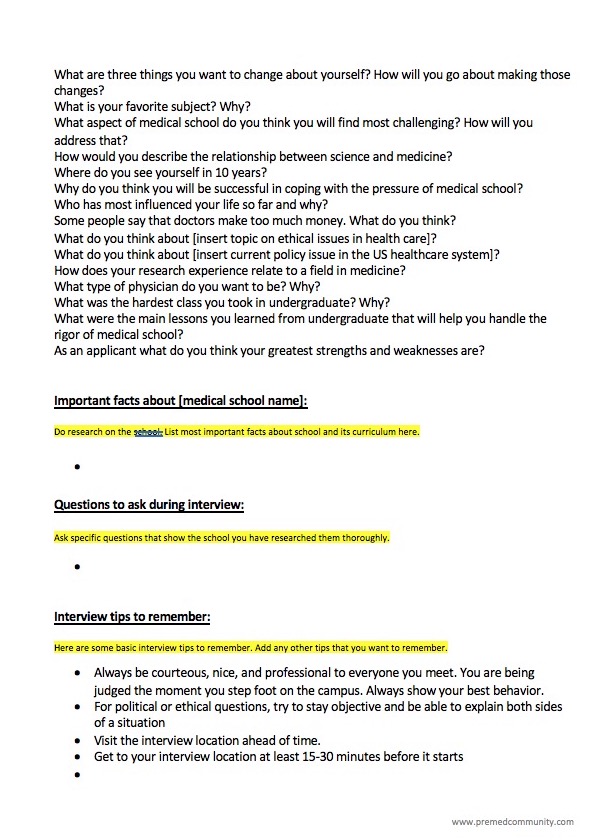5 Tips Every Pre-Med Needs To Hear Now

The process of applying to medical school is long and complicated. It requires pre-med students to use their undergraduate years wisely to build up a good application. As a pre-med it is important to know what to focus your time on and to have a game plan on how to accomplish what you need to. After applying to medical school, these are my 5 most important tips I can give to pre-medical students.
1.GPA and MCAT are not everything. Don’t underestimate the value of your extracurriculars
Many pre-med students fall into the trap of thinking that their MCAT and GPA are the only factors that matter to whether they get accepted into medical school. This is definitely not the case! Your GPA and MCAT are certainly important but they are not everything. Your extracurricular can be even more important to some schools than your GPA or MCAT. This will be especially obvious when you are filling out your primary and secondary applications. Medical schools care about your shadowing, research, and volunteering! If you don’t have a good list of activities you have done, you will have a very hard time impressing any medical school even with a good GPA or MCAT. Remember, GPA and MCAT are just one component of your medical application. Don’t get so caught up in them that you forget to do your extracurricular activities! In fact, if you have a bad GPA or low MCAT score, your extracurricular activities can be what still give you a chance at getting accepted!
2. Start early on building your “pre-med resume”
What I mean by “pre-med resume” is your list of activities and extracurriculars that you can write about on your primary and secondary applications. You should begin working on building up your pre-medical resume as soon as possible. It is much easier to get in a variety of volunteering, extracurricular activities, and shadowing in when you have 3-4 years before applying than if you waited till the last year. My advice is START EARLY on building your pre-medical resume. Start looking for physicians to shadow as soon as possible and getting those volunteer hours in. It looks better to medical schools as well if you have a long history of volunteering than if you just tried to grind it out over a month or two. Another advantage of starting early is that you will have more time to build relationships that can lead to quality letters of recommendation.
3.Try to start finding opportunities that will present you with memorable experiences
Medical schools love to ask about memorable experiences that you have had that is related to medicine or motivated you to pursue medicine. There will be questions about this all over your secondary applications and during your interview. That is why it is important you seek out opportunities that other pre-med students probably aren’t doing. This could be things such as a volunteer trip to help serve people in an underserved area or country, volunteering for hospice, being involved in some non-profit organization, going on a trip to present your research at a conference, or even just something memorable from shadowing.
4.Learn about the school’s you plan on applying to
If you haven’t done this, do it right now. Knowing about the schools you are applying to will help you realize what the ideal applicant is for their school. If the school you are applying to values research a lot, you better make sure to get some research experience under your belt. You will have a big advantage by knowing what the schools you are applying to are looking for in applicants. This will help you tailor your application to the schools you are interested in applying to.
5. Plan out your pre-med years
Take the time to plan out your pre-med years ahead of you. Figure out what your goals are for your freshmen, sophmore, junior, and senior year as a pre-med. Come up with a game plan for how you are going to get in your shadowing, research, and volunteer hours. You also want to come up with a general timeline for when you want to take the MCAT and when you plan on actually applying for medical school. Take some time to create a document where you basically outline the way you want to allocate your time as a pre-med. This will help you stay organized and be on top of all your pre-med goals. Doing so will make your life much easier!





